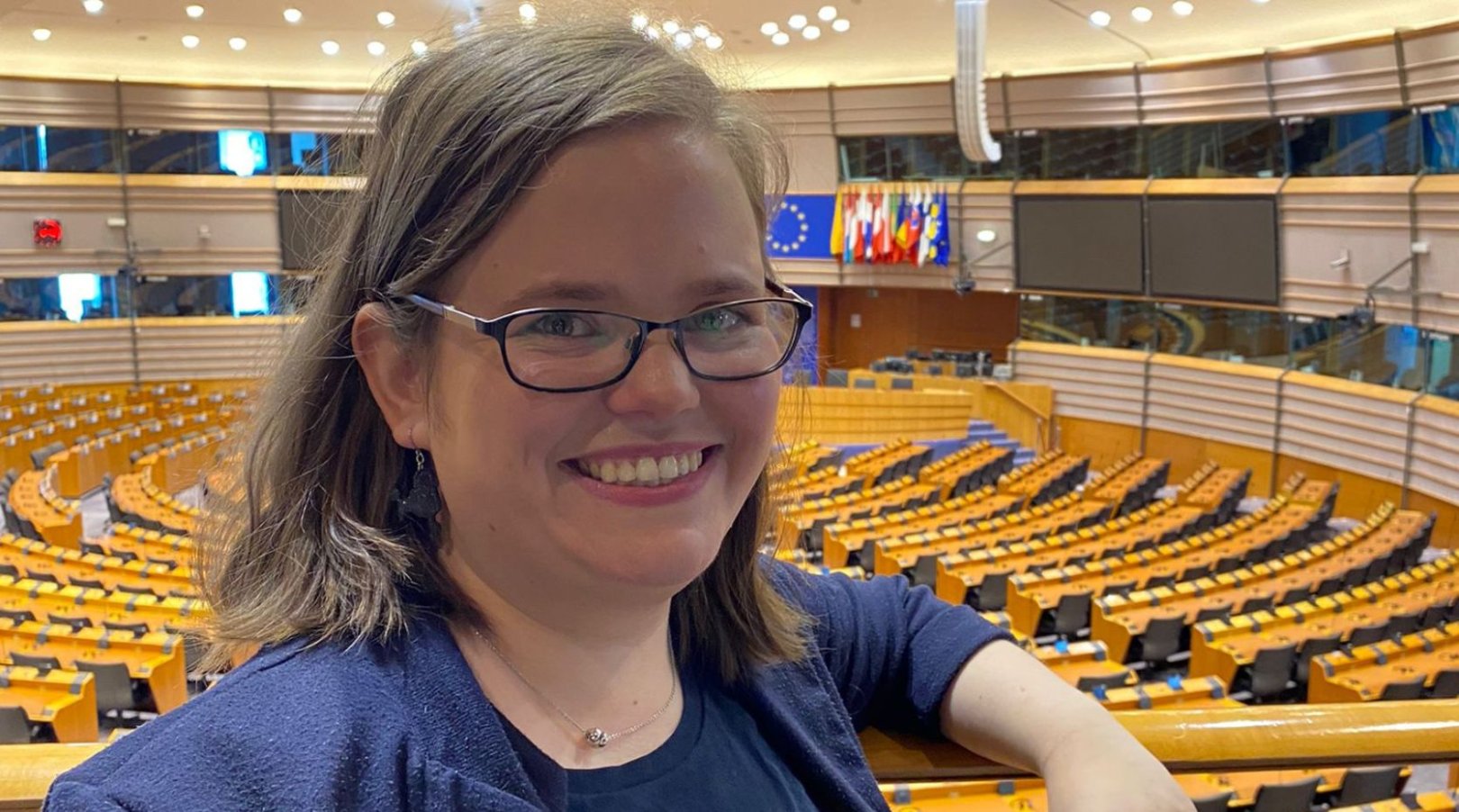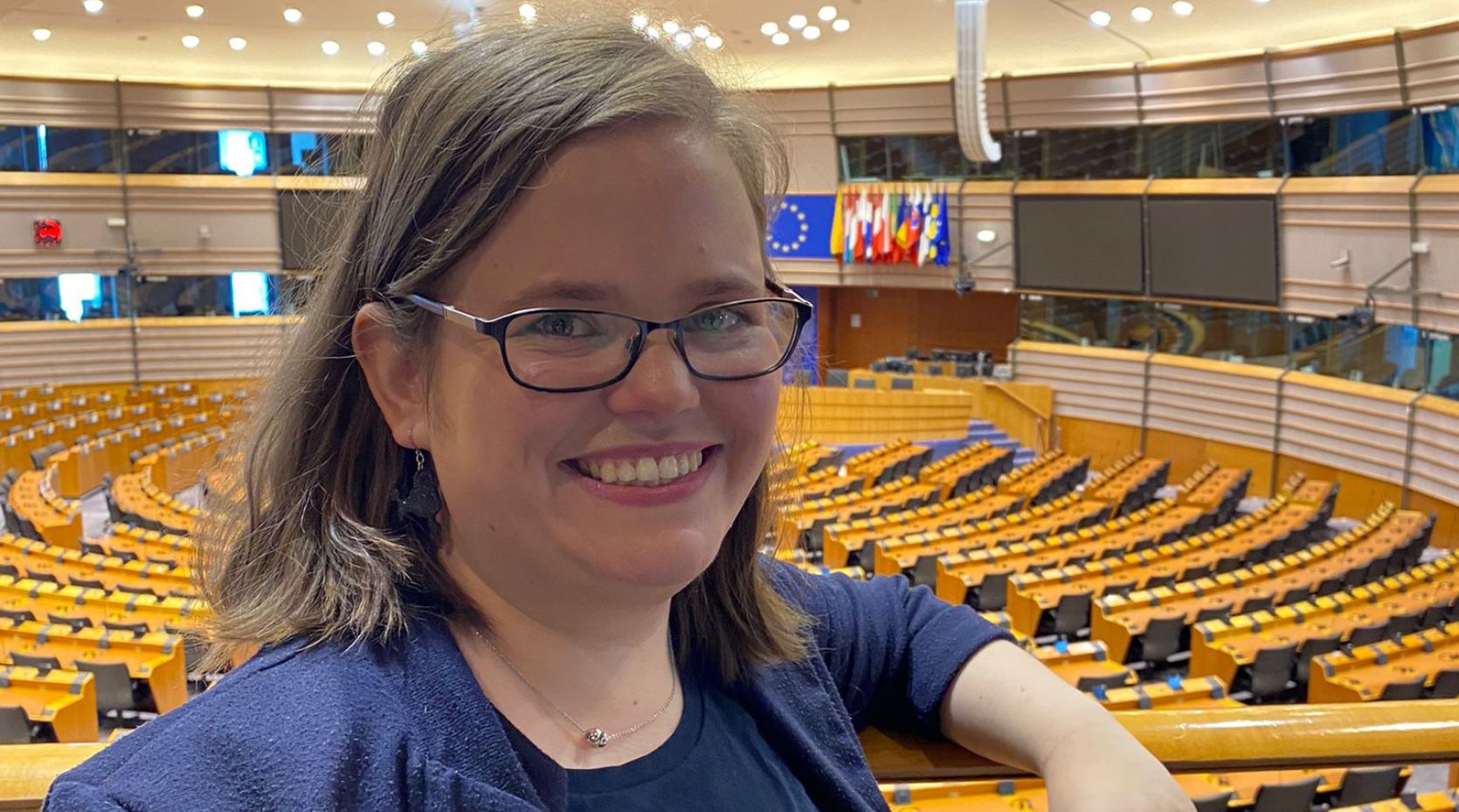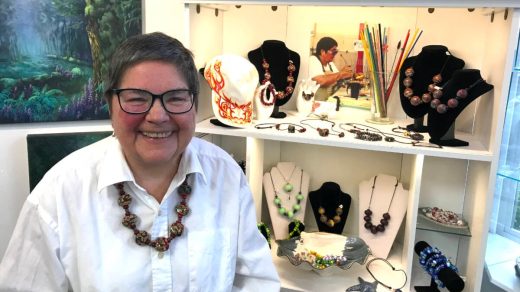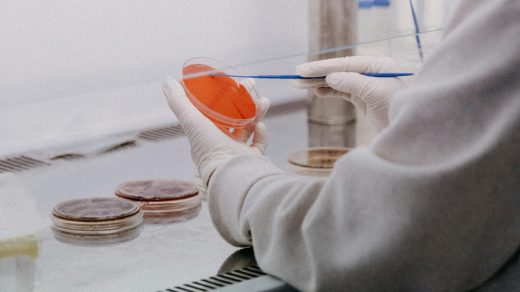
Our new Brussels-based Campaigns and Advocacy Manager, Hildur Kristjana Önnudóttir, joined Parkinson’s Europe at the beginning of March. We spoke to Hildur about the work she will be doing for the organisation, and why it is so important.
What did you do before joining Parkinson’s Europe as Campaigns and Advocacy Manager?
For the past seven years, since I graduated from my master’s in EU External Relations from the University of Kent, I have worked in advocacy for non-governmental organisations (NGOs) here in Brussels. I specialised in health policy and disability rights. This includes focusing on Article 25 of the UN Convention on the Rights of Persons with Disabilities, which addresses the right to health.
I have had roles with various perspectives, including working in health organisations representing healthcare professionals. For the past five years, I have been working from the patient’s perspective in what we call in the disability world a DPO (Disabled Person’s Organisation, which is led and run by disabled people).
Before finishing my studies I also worked in the health and social care sector. For a brief period, I was a carer of people with disabilities. I also worked as a care assistant in a care home for the elderly, which included people with Parkinson’s.
Why did you want to work for Parkinson’s Europe?
I was already familiar with Parkinson’s from my past experiences, and with my advocacy work, I knew that I had a lot of expertise to bring to the organisation. It was also a bit different from my previous work in that it was diving more specifically into health policy.
I am disabled, and so that is one of the reasons why I am passionate about access to healthcare and the rights of persons with disabilities.
Even though I don’t have Parkinson’s, I have personal experiences that most people with chronic conditions or disabilities have in common. I have experienced stigma, discrimination, inaccessibility of services and infrastructure and the discomfort people have around conditions that originate in the brain. As well as the fears when you’re going to specialists. The fear of not being believed, the fear of getting bad news, especially when you don’t know what’s going on, and the difference it can make when you have a healthcare professional that really listens to you.
What does your job as Campaigns and Advocacy Manager involve?
One of the great things about it is that it can be very varied. One day, you are at an event that might be very technical. You might be meeting MEPs or learning about new treatments, and then the next day, you are reading through legislation, doing research into potential external stakeholders that could be good partners for Parkinson’s Europe and doing some research into policy makers. There is a lot of prep work involved.
At the moment, my job is very heavily focused on data gathering and getting to know other people in the field here in Brussels, because that is the foundation of a good campaign. My goal is to maximise the external impact of the campaigns of Parkinson’s Europe.
I am bringing expertise in reaching different stakeholders to those Parkinson’s Europe has been targeting before. As well as bringing the advantage of having a representative in Belgium that is close to European institutions and stakeholders.

Is being based in Brussels crucial to the role?
Yes. The EU is not the only focus of Parkinson’s Europe, but being in Brussels can be very useful. A lot of NGOs are stationed here. It is also a very good way to get in touch with the national policy makers. You can meet people by chance and build really long-lasting connections that way.
What are your first goals for this year?
My first goal is to get to know the community. Because when I am out there in meetings, I am representing Parkinson’s Europe. I need to understand, what are the concerns of people with Parkinson’s? What are the barriers in their everyday lives? What are the difficulties they are encountering when accessing the right healthcare professionals, the right care, be it social support or health, medicine – just everything.
My role in advocacy is to amplify their voice, not to be their voice. I will also be involved in the steering groups, helping with their organisation and structure.
How does your role support Parkinson’s Europe’s new strategy?
To begin with, I will be very active in the first pillar, which relates to data and innovation. But overall, advocacy and campaigning are about making sure that the goals reach the people who are able to make those things happen.
So, part of it is about targeted awareness-raising and tailoring messages to specific audiences or actors. It is about reaching out and helping to create possible partnerships that are valuable for achieving the goals within the strategy.
What is the role of advocacy?
To echo what the Parkinson’s community is saying, that is really the role of advocacy. It is so important for the community to have a very powerful voice on the continent. It is not just beneficial for EU member states.
It’s having that strength and visibility and being part of the decision-making processes on the international stage. It is so important. And although you might not see the impact immediately with advocacy, it’s very much like planting a tree – you nurture it and nurture it and you will get the rewards.



